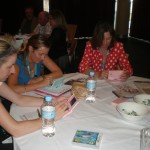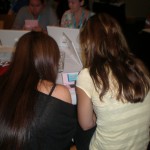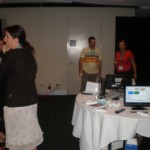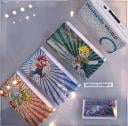A HUGE thank you to Ollie Bray who organized a busy and information packed Wednesday that took us to Wallyford Primary and Musselburgh Grammar to see Games -Based Learning in action in a variety of classes and age groups.
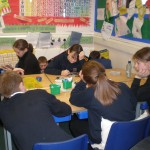
Gail and I were accompanied by Margaret and led out by Ollie to see a range of game platforms being used by great teachers, enthusiastic students and a proud & passionate Mr Bray.
Without exception, students from the two schools were engaged and enthusiastic about the use of games in their classrooms. Whether the games were being used for skills practice, skill speed improvement, concept development, or as a context for learning new skills – students responded to the playfulness and fun of the games.
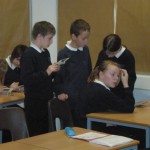
This allowed teachers to harness and support this enthusiasm into meaningful learning experiences for their students. Maths drill and practise became purposeful and competitive; story writing was embedded in a shared context; and dance and movement was personally challenging with goals and targets to keep on track.
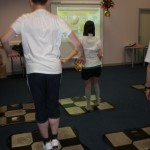
It was interesting to see how the teachers “unpacked” the learning taking place with their students. Discussions, suggestions, strategies and rules could be seen in charts and on walls of the classrooms that indicated the learning that was taking place was deeper than the skills emphasized in the games themselves.

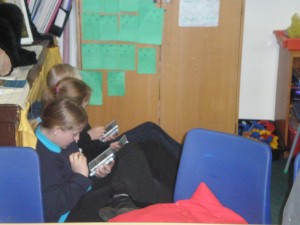
Problem solving strategies were listed and articulated, child protection issues were talked about and solutions offered, management routines were developed with and by the students. All of which engendered ownership of the learning that was taking place, and the strategies and routines that students could use to confidently use and make the most of the games and learning they were involved with.
All in all a wonderfully fun and enlightening day in many ways. Thanks to the teachers who were so willing to share their classes and teaching with us.
